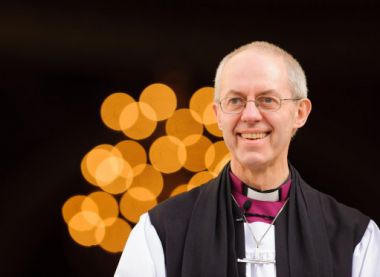Church serves 10 million people every year

The Archbishop of Canterbury has praised the Church for being "part of the solution for building community blessing at every level".
New research, commissioned by the Church Urban Fund (CUF) and think-tank Theos, has found that 10 million adults use church-run community services in England every year – a figure that accounts for over half of all those who access services such as foodbanks, lunch clubs and night shelters.
Researchers studied 12 "relatively deprived" parishes across England, exploring the community-based work of churches and the range of services provided. They found that Christians are leaving a "significant social footprint" across the country.
A report has subsequently been released today entitled 'Good neighbours: how churches help communities flourish' which details the survey's findings, the forward to which is written by Justin Welby.
The Archbishop insists that the report "demonstrates the scale and nature of that love for neighbour in practical action. It shows that relationships are at the heart of every community, and that churches are at the heart of local communities.
"It shouldn't come as a surprise to anyone that the Church is part of the solution for building community blessing at every level," he adds.
According to CUF, "The findings underline the importance of Church contact which forges 'neighbourliness', concluding that strong relationships and social networks, which churches offer, can help communities become more resilient in the face of social and economic change".
The report also highlights that churches are working collaboratively with other faith groups and statutory agencies in order to reach the greatest number of people possible, but concludes that "the community engagement grows from nothing other than Christian commitments and practices and a desire to 'seek the welfare of the city'".
"Many people wrestle with the problem of poverty in this country and I am delighted that this report shows that churches are providing such a huge and significant part of the answer," said Rev Paul Hackwood, Executive Chair of CUF, in a statement.
"We cannot underestimate the importance of neighbourliness in helping people and communities flourish."
"Most people know that churches and other faith based organisations do a huge amount in areas of high deprivation, but the nature of churches' engagement isn't well understood," added Paul Bickley of Theos, who wrote the report.
"The research shows that it's not just what churches do, but how churches think and operate, that helps them give something distinctive to their communities. They do offer material and practical support, but they also offer relationships and social connection – in a word, neighbourliness."
At Easter this year, Prime Minister David Cameron praised churches across the UK for their voluntary work, and pledged his continued support.
"If there are things that are stopping you from doing more, think of me as a giant Dyno-Rod," he said in a rather bizarre analogy.
"Jesus invented the Big Society 2,000 years ago," he added. "I just want to see more of it."











